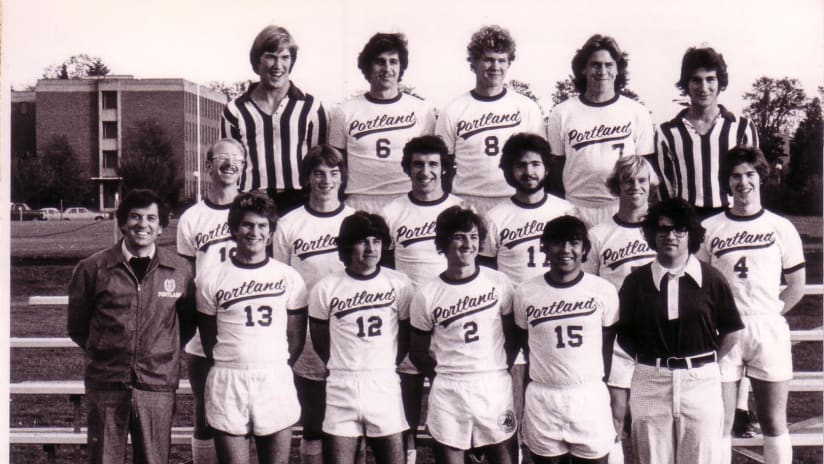Allocation is one of MLS’ most difficult set of rules to understand. In this edition of MLS 101, we try to translate those rules into plain English.
What is Allocation?
Allocation represents the amount of money that teams can use to sign players or allocate toward players’ salaries to get under the salary cap. In its basic form, allocation is a mechanism that MLS has in place to help keep the playing field level.
Why does MLS use Allocation?
MLS’s goal of allocation is to encourage teams to put the best possible talent on the field without the salary budget becoming a hurdle. Through allocation, the league alleviates that burden by providing roster flexibility while also maintaining a level playing field for all teams, whether or not they have designated players.
Distribution
A base amount of allocation money is awarded to all teams in the league, then additional amounts are distributed for:
• performance during the preceding MLS regular season (i.e., missing the playoffs);
• the transfer of a player to a club outside of MLS;
• roster purposes due to expansion status;
• exceptional circumstances as approved by the Competition Committee.
Each year the MLS Competition Committee determines the allocation amount to be made available to each team. Allocation money can be traded by teams and does not count against a team's salary budget.
Another way teams can collect allocation money is through designated player distribution. If a team has filled both of its designated player slots and wishes to acquire a third, it may purchase that third designated player slot by making a $250,000 cash payment to the league. That cash payment is then split up evenly among all other teams that do not have three designated players, and awarded in the form of allocation money.
Using Allocation Money
Allocation money can be used:
• to sign players new to MLS (a player who did not play in MLS during the previous season);
• to re-sign an existing MLS player;
• to buy down the budget on a designated player;
• in connection with the exercise of an option to purchase a player's rights or the extension of a player's contract for the second year provided the player was new to MLS in the immediately prior year.
Allocation money cannot be used to buy down the salary budget number of players already under contract to the league (designated players are under contract with the team, not the league).
Signing Players with Allocation Money
Allocation also serves as a method for acquiring new players: using their allocation money, teams can bid on certain players entering MLS. Remember, every non-designated player is contracted to the league, not to the teams. Because of this, MLS must provide a fair method to distribute throughout the league the players it signs.
- not every player must go through this process. There are other mechanisms of acquiring players that we will get into in future MLS 101 editions.
Using Allocation Money to ‘Buy Down’ Designated Players
Teams may put their allocation money toward a designated player by reducing, or ‘buying down,’ his salary budget number. Each designated player (no matter what he is actually paid) counts as $335,000 against the team’s salary budget. A team may buy that number down with allocation money to get the designated player’s budget number as low as $150,000. This lifts the burden on the team as it fills out the remainder of its roster.
One of MLS’s primary goals of making allocation work with the designated player rule is to keep the competitive advantage of big-spending teams to a reasonable level. The league wants to provide some advantage to signing high-cost players, but does not want that advantage to become overwhelmingly significant to the point where teams without designated players cannot compete with those that have them.
Allocation Rankings
There are also allocation rankings, which gives teams an order of priority in picking up returning U.S. National Team players through the allocation process. These rankings to start the 2011 season are the reverse order of 2010 finish, taking playoff performance into account. As expansion teams, Vancouver and Portland will start at the top of the list for the beginning of 2011, with Vancouver starting at No. 1 as a result of the MLS Expansion Priority Draft^.
However, the allocation list is primarily used to break ties between teams that file a request for the same player on the same day, in the case of returning U.S. National Team players. The same goes for other cases where the league, in its discretion taking into account all the circumstances, determines that the allocation rankings shall be applied. In such cases, priority will be granted to the team with the higher allocation ranking. Once a team uses its allocation ranking to acquire a player, it will drop to the bottom of the allocation list. The ranking itself can be traded as long as part of the compensation received in return is another team's ranking. A team may move up or down in the rankings, but only by swapping its ranking with another team (no team can have more than one ranking and no team can be without a ranking). The rankings reset at the end of each MLS league season. Allocation amounts are not made public.
^ - Vancouver used its No. 1 allocation ranking to sign defender Jay DeMerit in November and, as a result, moved to the bottom of the allocation rankings.
Discovery
Each offseason, teams submit a list of six players whom they would be interested in signing and developing (an expansion team can submit 10 players in its inaugural season). By doing so, the team maintains exclusive negotiating rights until the end of the season. These players must be professional players who are undrafted and unsigned. Then, during the season, teams can add these players to the senior roster once the league and player have reached an agreement.
Feature
MLS 101: Allocation and Discovery


Hispanic Heritage Night Special Offer
A special ticket+scarf offer for the Timbers' Hispanic Heritage Night on Sept. 27 as the club takes on FC Dallas.
-
Matchday | Timbers play New York Red Bulls on Native American Heritage Night
-
TRIMET ALERT FOR SEPT. 13 | Coming from the westside? Catch Express buses from Sunset Transit Center
-
5:17
"I'm looking forward to my first home game" | Velde talks ahead of home debut
-
7:55
"We're under no illusions about the importance of Saturday's game" | Neville talks ahead of PORvNYRB
-
Omir Fernandez discusses playoff push | Talk Timbers
-
1:00
A home debut for new players | The Matchup
-
1:13
Rose City Rose Trip, presented by Providence, visits Hood River










